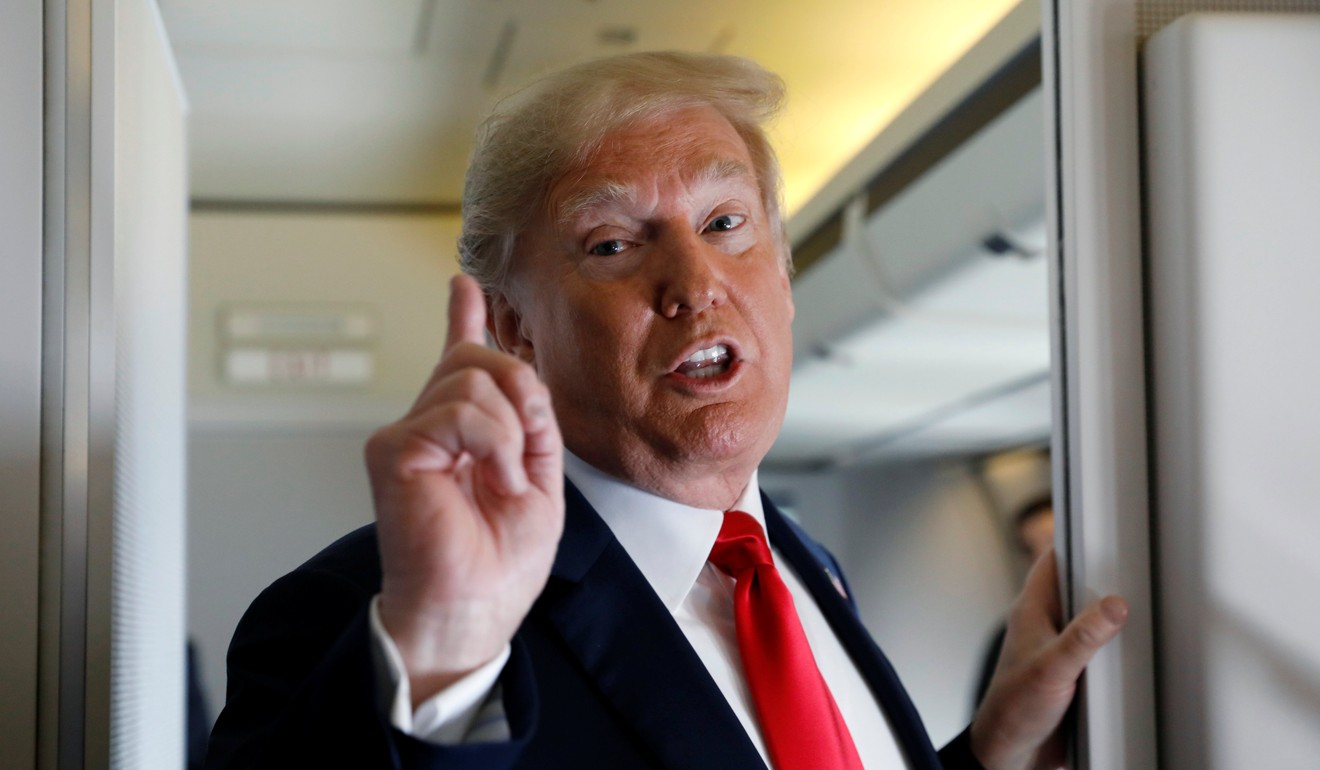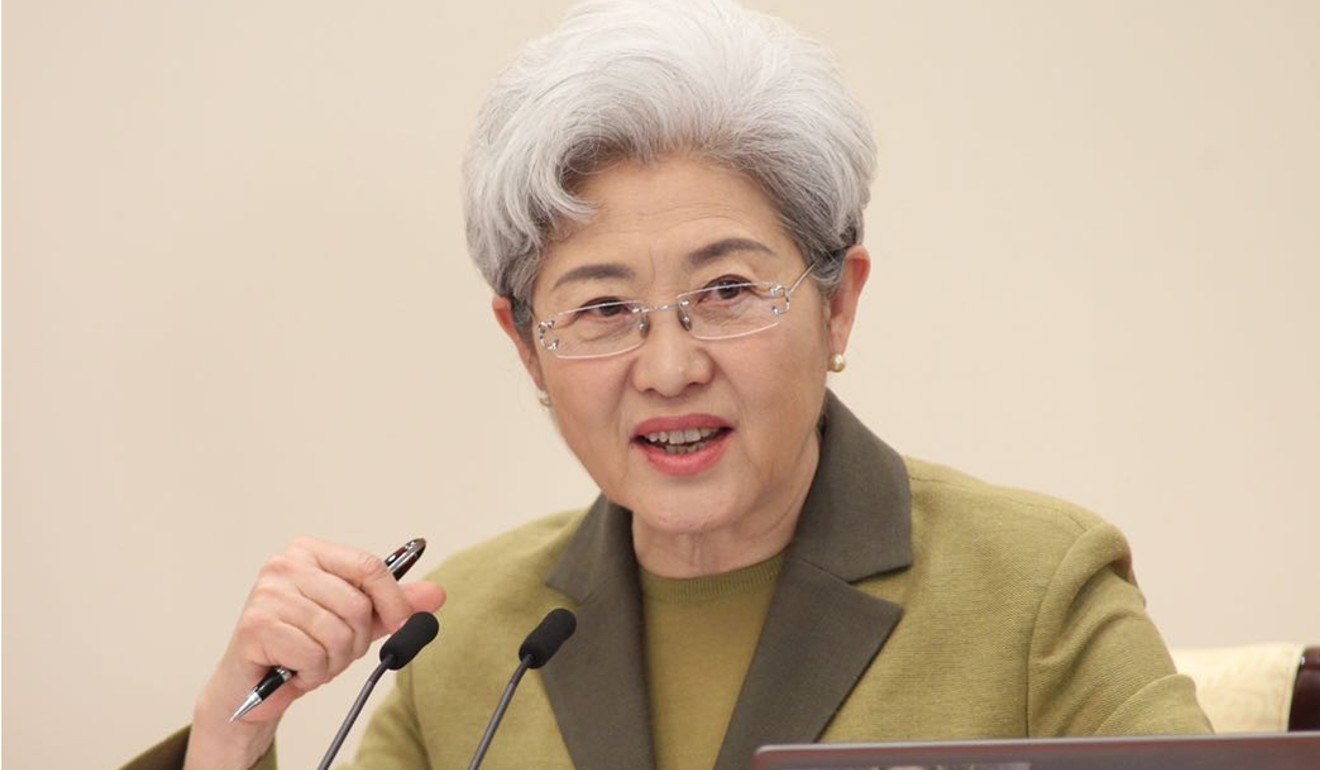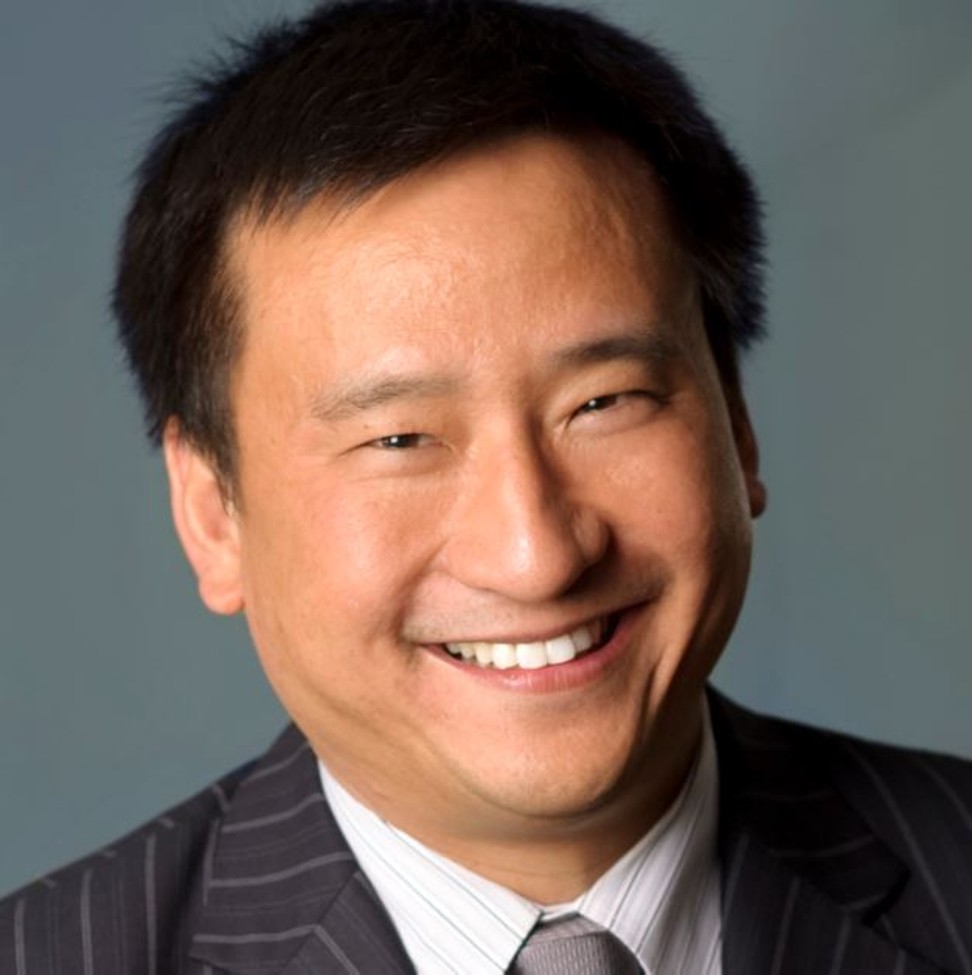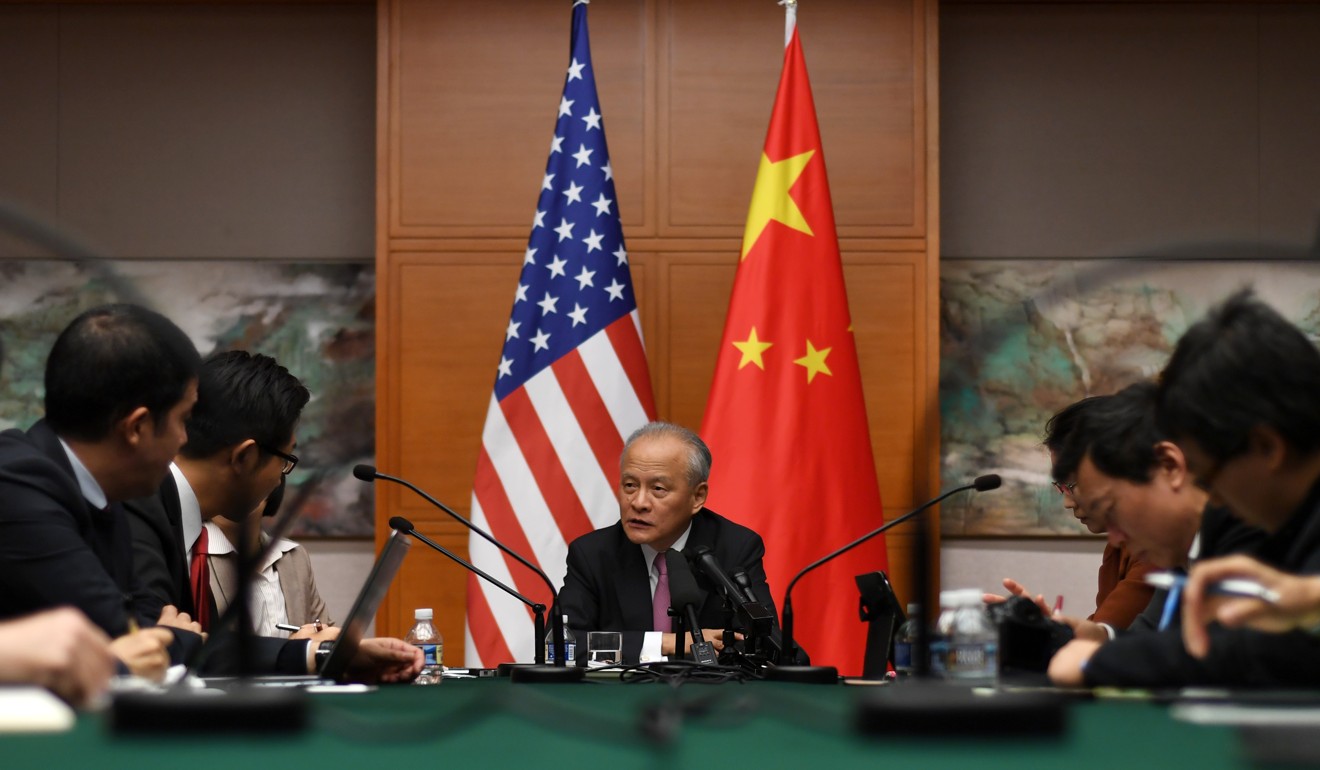
Despite spiralling trade war, China likely to be a non-factor for US voters in midterm elections
In Beijing, there are worries that fallout from political turbulence in the US could further erode relations
As US President Donald Trump fights for survival in the politically divided United States, China worries that it could become collateral damage in the partisan struggle.
Faced with the growing chance that Democrats, riding a wave of anti-Trump sentiment, will regain control of the House of Representatives in the November 6 midterm elections, the Republican president looks poised to escalate the trade dispute with China even further.
Beijing is particularly unsettled by Trump’s tough and unyielding approach to trade and a litany of national security and geopolitical concerns, such as the South China Sea and Taiwan.
Many observers said that Beijing should not pin too much hope on the midterms’ outcome for improving US relations.
“The consequence of midterm elections is important – its implications on America’s domestic politics are clear and predictable. But its impact on US-China relations is too difficult and too early to assess,” said Cheng Li, a China expert at the Brookings Institution. “Because of Trump’s unpredictability and inconsistency, we will not know what the president would do vis-à-vis China.”
Li said Beijing might have already factored the congressional elections too heavily in considering US-China relations.
He said China tended to overestimate the importance of bilateral relations in Trump’s agenda, which was primarily about his own survival and American domestic politics.
“One of the things the Chinese side fails to understand is a lot of things that happen in the US are to do with American domestic politics, Trump’s personality, his own interests and agenda,” Li said. “The US-China relationship is not Trump’s primary concern.”
“We all have difficulties in understanding Trump,” he said. “I don’t think Trump is anti-China, but he is more obsessed with his own agenda.”
Robert Daly, director of the Wilson Centre’s Kissinger Institute on China and the United States, also said that Americans did not think about China as much as Beijing seemed to believe.

“China will not be a direct factor in the elections,” said Daly, a former American diplomat based in Beijing. “Trump is whipping up support among voters who already like him by playing tough with China, but it’s the toughness, not China itself, that matters.”
During a recent trip to the United States, a group of former Chinese diplomats and retired government officials cautioned that China and its ties with the US should not be at the mercy of American domestic problems.
“The US needs a major overhaul to address profound challenges under the pressure of socio-political divisions and transformation, and Washington cannot solve its problems by making China a scapegoat,” Chinese state media organisation Xinhua quoted members of the group as saying.
The remarks came during a two-day dialogue about trade frictions between several US think tanks and a Chinese delegation led by Fu Ying, the former deputy foreign minister and now vice-chairwoman of the National People’s Congress foreign affairs committee, and Zhu Guangyao, the former vice-minister of finance.
Trump is losing voters – spelling trouble for Republicans in midterms
The “fervent and candid” exchanges of views coincided with reports that, in advance of the midterm vote, Trump is ready to escalate the trade war.
Trump stepped up his threats on Friday, saying he wanted to move ahead with his plan to impose tariffs on all Chinese imports. This would be on top of the US$200 billion in goods likely to be hit with tariffs within days, as well as the 25 per cent tariffs on US$50 billion of products in effect since July.

Leading administration officials, including Trump’s top economic adviser Larry Kudlow and Commerce Secretary Wilbur Ross, have made it clear that punitive tariffs on Chinese imports are a way to force Beijing to change its trade practices and level the economic playing field.
Chinese officials, including Fu and Cui Tiankai, the ambassador to Washington, have criticised what they consider Trump’s trade bullying and said that Beijing would be left with no choice but to again retaliate in kind.
Political and diplomatic observers have decried the confrontational approach adopted by both sides and the damage it has already wrought.
Trump will add US$200b in China tariffs and may expand to all imports
“It’s true that China has been in the headlines mostly negatively, and we are at a low point in bilateral relations since the normalisation” of ties in the late 1970s, said Frank Wu, president of the Committee of 100, a group of influential Chinese-Americans.
Most analysts agree that the coming elections will be dominated by domestic issues, and the vote is widely viewed as a referendum on Trump.
Elaine Kamarck, a senior policy adviser to former US vice-president Al Gore and now a senior fellow at the Brookings Institution, said that foreign policy issues traditionally had little or no impact on midterm elections. “In our studies, only health care and immigration are frequent topics on the campaign trail,” she said.
Watch: US soybean farmers feel the impact of impending tariffs
Gal Luft, co-director of Institute for the Analysis of Global Security, a Washington-based think tank, agreed that China would not be a factor for most midterm voters.
“Of course China might be mentioned occasionally in election speeches, but it will not be a central issue,” he said.
“Furthermore, China is not a partisan issue. Democrats and Republicans are more or less in consensus about the challenges related to a rising China and would prefer to focus on issues in which their views strongly differ from each other.”
Li said it was “a wrong approach” for Beijing to target American farmers with tariffs because they would do little to change the opinion of Trump’s loyalists, who are not especially driven by trade issues and would still support the president.
Will Russia meddle with US midterm elections? CIA chief says ‘of course’
“What Beijing did will not have much effect on the elections, but will only alienate people and infuriate Trump, who repeatedly lambasted Beijing for targeting the farmers; [Beijing’s actions have] proven to be counterproductive by further escalating trade tensions,” he said.
But the midterm results could still determine Trump’s approach on China because his political survival was at stake, said Stapleton Roy, a former US ambassador to China.
“Because of the domestic threats to the Trump presidency, for him to lose either [House or Senate] chamber would put him in a much more dangerous position,” he said. “He will have to constantly decide whether being hard on China or moving into negotiations with China on the trade disputes is more in his interests in terms of the midterm elections.”

No matter the elections’ outcome, how to deal with China remained “front and centre” in America’s dialogue with its allies and partners in the Asia-Pacific region, according to Randall Schriver, assistant secretary of defence for Asian and Pacific Security Affairs.
During his Senate confirmation hearing in November, Schriver put it more bluntly. “The challenges posed by a rising China are probably the most consequential challenges of my generation,” he said.
In a potentially serious move in December, the Trump administration redefined its relations with China in its first National Security Strategy. For the first time, China was billed as a strategic rival and disruptive power aimed at usurping Washington’s dominance in Asia and beyond.
For Chinese President Xi Jinping and his advisers the real problem, according to Roy, is how the stability of the Trump administration plays out in terms of US domestic politics, and if the midterm results put Trump in a bind.
Apart from China’s complicated domestic problems, including the slowing economy and mounting social grievances, “Xi will also have to decide what’s going to happen in the US”, Roy said.
“Here are the unknown factors. Is the president going to complete his first term, or is he going to run into legal difficulties that could devolve into his resignation or impeachment, which may completely alter Washington’s policy course? It’s a major consideration for China,” he said.

Luft said the midterm results could be significant for China only if the Democrats won the House, which would give them investigative powers and could potentially lead to impeachment proceedings.
“With his back against the wall and unable to execute any major policy initiative, Trump might use China as a bogeyman to divert public attention from his domestic ordeal,” he said.
Beijing ‘will hit back’ if Trump imposes new trade tariffs
Steve Tsang, a political scientist and director of the SOAS China Institute in London, agreed.
If the Republicans lose the House, he said, “I doubt Trump will have much time to focus on China, though he might just try to use China to distract critics domestically”.
Analysts were predominantly pessimistic about the prospect of bilateral ties.
Orville Schell, director of the Centre on US-China Relations at the Asia Society in New York, said the current confrontation was much bigger than trade disputes and would probably have a lasting impact on the bilateral ties.

“Even though Trump imagines his personal relationship with Xi is close, I’m painfully aware that his basic DNA when it comes to China is much more negative, and he’s also very much dedicated to the idea of pushing back against China and starting a trade war is necessary,” Schell said.
“I was hopeful for a while that we could avoid a train wreck, that the pragmatic side of China and Xi would come to the fore and recognise the importance of the relationship and make some important concessions. But I’m less optimistic now.”
The problem was that neither side could find the strength of leadership or imagine a way to compromise because they wanted to take care not to appear weak, Schell said.
Roy said that despite being freed from democratic elections, Xi was also in a difficult position, and faced mounting domestic pressure over his handling of bilateral ties.
“In my judgment it’s not an option for China to try to burn the bridges with the US,” he said. “It has to keep open the possibility of being able to move back towards a more normal relationship with the US. I would be very surprised if Xi thought China could develop an effective strategy for having a hostile relationship with the US.”
Daly, of the Wilson Centre, agreed that the stakes were high, and that it was essential for both countries to find a way to repair the damage.
“It is vital that American and Chinese policymakers address this frankly, define red lines and create mechanisms to promote mutual restraint so that hostility doesn’t lead to armed conflict,” he said.
How China can avoid a Soviet-style collapse in its cold war with US
“Neither nation knows how to build a new foundation for constructive relations between a powerful, prosperous US and a powerful, prosperous China over the long run. But such a foundation must be found. There are no historical precedents to guide this project.”
Cui, the Chinese ambassador, made a rare admission recently that US-China relations were facing “a big problem” and there was good reason to be worried about the nations’ increasing geopolitical rivalry.

But he insisted that the countries would be able to escape the so-called Thucydides Trap, the rivalry between a rising power and the ruling power.
“I don’t think what happened in the past in Europe is inevitable for our two countries,” he said.
“I am sure our two countries can find a new path and build a new type of relationship between major countries,” Cui said at the Centre for Strategic and International Studies on August 30. “And indeed, the best way of avoiding a trap is to open a new path. And this is, I believe, a common task for our two countries and our shared responsibility to the world and to history.”
But Cui, of course, is a diplomat. At this stage, and with so many elements churning the political waters in Washington, most China experts are not optimistic that a new path will be found any time soon.

